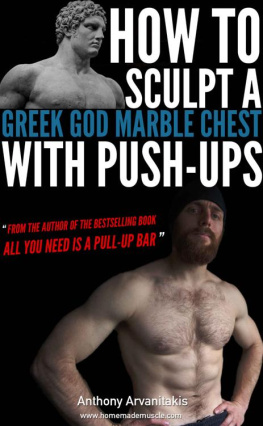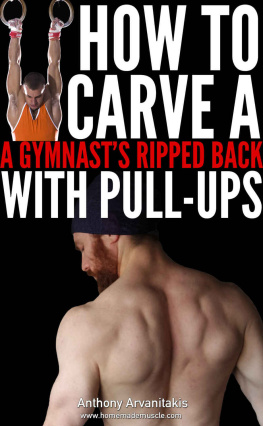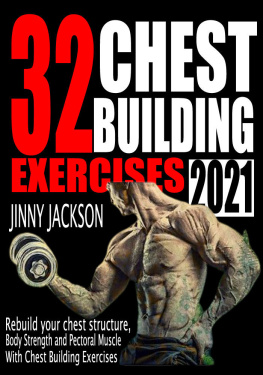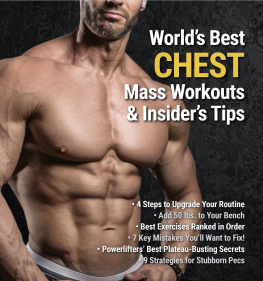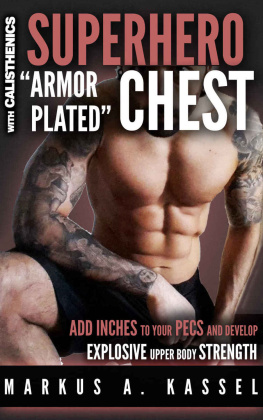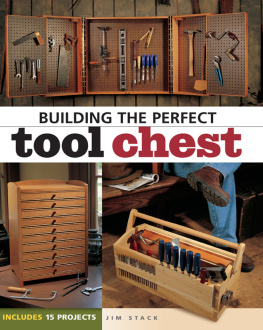Thank you for believing in me...
Intro
The ancient Greeks were famous for a lot of stuff. Democracy, philosophy, architecture... and the list goes on. Being half-Greek myself I can only think of one thing regarding my DNA. I'm just not Greek enough! One of the things Greeks were quite famous for was their amazing, aesthetic strong bodies. For them, beauty meant symmetry. A rule evidenced by their architecture, art, and the physiques we find on their marble statues. Their ideal male form (especially as portrayed in sculptures) had among a lot of details, one common thing - a wide and rugged chest. The push-up (PUS) has been around for thousand of years. By doing this exercise you'll be strengthening your body in the same way great warriors like the Spartans did. Whenever I'm down on the floor, hitting PUS reps, I like to feel a connection to these amazing physical specimens, warriors and brave men that lived in that era...
This is not a book on how to do a gazillion Push-ups (PUS), tens of PUS variations or how to break CrossFit PUS records. Neither is this a "how to do PUS" book. There are hundreds of Youtube tutorials that teach you how to do that, so I didn't see the point in adding something like that in here. In case you skipped the book's description on the sales page and you can't do PUS yet, make sure you can master at least 8 simple reps before moving on.
Not only is this book not going to teach you how to break PUS records... as a matter of fact, it will teach how to do less PUS! By learning how to use perfect form and how to increase muscle contraction intensity, you'll learn how to build that aesthetic Greek God marble chest you always wanted. And most importantly, this is not just a book about push-ups - it's about a mindset. The mindset you should be using when training with bodyweight exercises. Through this material I want to teach you to feel your body and not just bang out meaningless reps! I also tried to keep the information in here as short as possible. One of the biggest problems when it comes to getting in shape nowadays is paralysis by analysis. We over-analyze stuff and end up not getting anything done. We live in an age of information overload, and although we have all the exercise science related knowledge at the end of our fingers with a click of a mouse, we just can't manage to get in shape.
Here is an idea...
Start with mastering one simple exercise - the PUS. For the next month just master PUS. Stop googling complex workouts, stop trying out different fads just because a friend of yours is doing it and it looks cool. STOP! Simplify... Just master a simple PUS...
Beauty of style and harmony and grace and good rhythm depend on simplicity.
~Plato
Note: To avoid repetitive use of the word Push-up(s ) Ill be using the following initials PUS
PART 1 - UNDERSTANDING PROPER TECHNIQUE
Intensity always trumps meaningless repetitions...
A lot of people doing bodyweight exercises use momentum and lack of range of motion in order to do more reps. A few weeks ago, a guy at a calisthenics park asked me how many PUS can I do. He was sort of polite but his voice also had a tone of cockiness behind it. He told me he could pull-off a 100 reps on a good day. Although physically he was quite underdeveloped, I don't think he was lying (to anyone else other than himself at least). He actually believed he could do 100 PUS. Having also got a glimpse of him while he was training as I entered the park, I had enough input to imagine the way he accomplished 100 reps. You see... doing a 100 push-ups with horrible form, a very wide hand-stance and using half the range of motion (at best) can make 100 push-ups quite a feasible number for anyone that has been doing calisthenics for a while.

My look when people half my size tell me they can do 100 PUS
Now we've all seen these guys around us. Some of you probably do the same. Hey I get it, we've all gone down that road at some point (especially as newbies). When we lack experience and proper guidance it is easy to neglect form and believe that more reps equals more strength. The truth is that, how many reps you can do has nothing to do with how much you're exerting yourself. It has nothing to do with how much tension you're applying to your muscles. Let me repeat that:
"How many reps you can do has nothing to do with how hard you're training..."
Especially when aiming for a hypertrophic response (mass), a proper workout should focus on muscle fatigue - not rep PRs. Intensity always trumps meaningless reps. If you want to build muscle, you should always focus on that mind to muscle connection. Don't beat up your joints and tendons with bad form and momentum. Focus on targeted and maximum muscle fatigue. Don't use good form - use perfect form (in 9/10 of your reps at least). Be mindful, concentrated, focused, in the zone...
Muscle contraction is key for hypertrophy! You see, your muscles don't understand the difference between how much weight they are lifting, in comparison with how much you are making them contract voluntarily. All the muscle recognizes is tension. Tension increases the production of anabolic hormones like IGF-1 and testosterone, which are essential for muscle hypertrophy. Simply said, the more you give your muscles the illusion that they are moving against something really heavy, the stronger and bigger they'll become to handle that "phantom" weight! This is why muscle activation will be a huge part of this book.

Be mindful, be in the zone...
As a beginner, good form should be your primary focus. Teaching the nervous system to perform even the most simple bodyweight exercises takes a lot of attention. But after mastering 8 technical reps you should start observing more inside than outside. Start being more aware of your neuromuscular system. Adjust the tempo and joint-angles/body positions, based on the feedback you're getting from these sensations, in order to maximize the targeted muscle's contraction. This probably sounds complicated to a lot of you right now. Don't worry, I'll simplify stuff in the following page. Ive got your back!
Lesson #1: How to switch on your Chest
Before getting down on the floor, it's crucial to first understand how your chest muscles work. This is essential in order to properly activate this muscle group during a push up. A lot of people do PUS as a chest workout, yet they are mostly using their shoulders and triceps (while also damaging their joints). As you can see the pectoralis major (the big part of your chest that gives it that strong curvy look) originates from your sternum and inserts itself on the upper part of your humerus (arm bone).

Your chest's main function is arm adduction. What is arm adduction? Well, imagine you were crucified and you wanted to bring your arms towards your chest - that's your chests main function. Ok, bad example I guess, but it paints a clear picture. In order to get a better feeling of this try the following simple exercise. All you need are two chairs:

